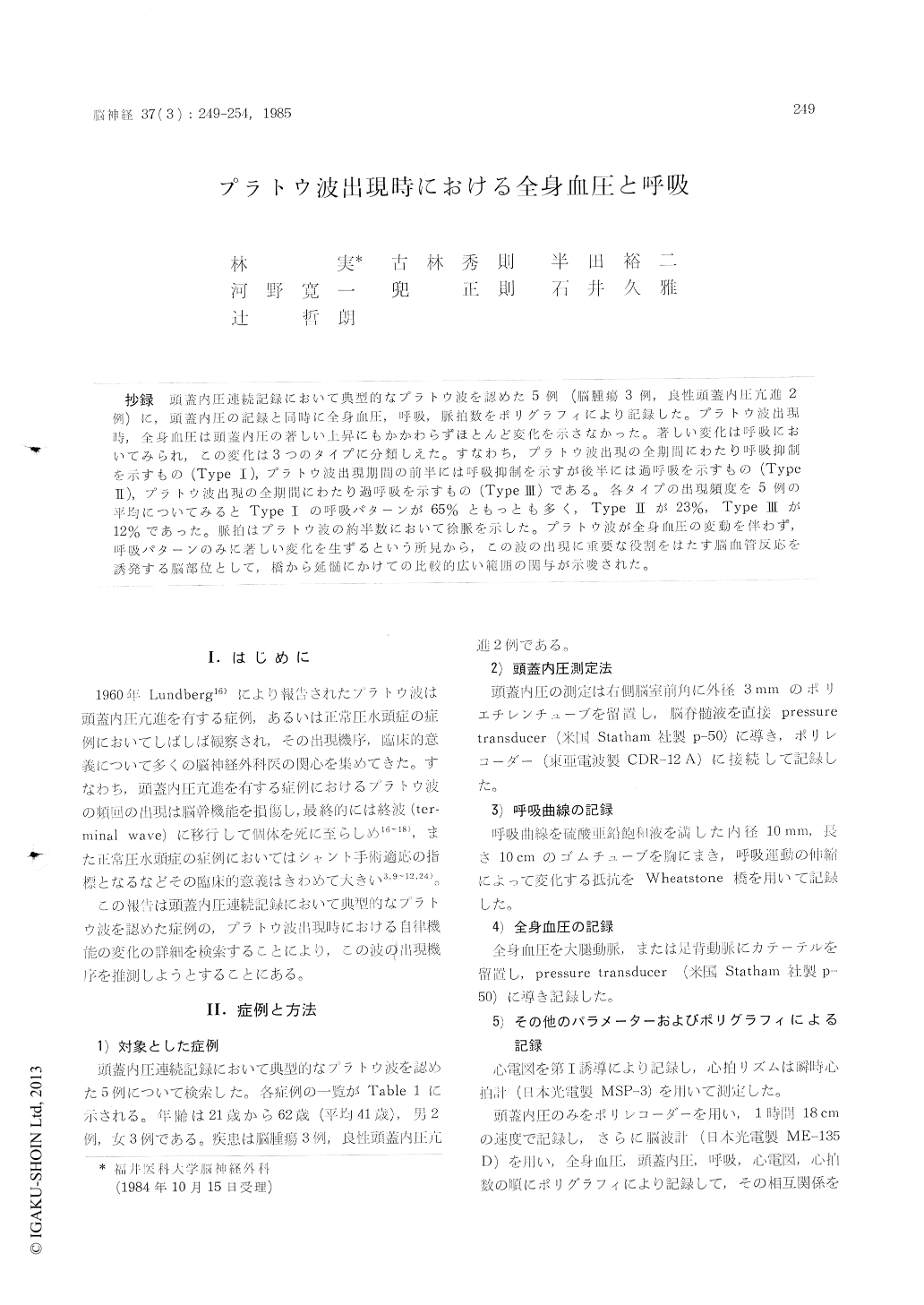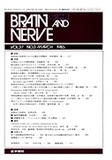Japanese
English
- 有料閲覧
- Abstract 文献概要
- 1ページ目 Look Inside
抄録 頭蓋茎内圧連続記録において典型的なプラトウ波を認めた5例(脳腫瘍3例,良性頭蓋内圧亢進2例)に,頭蓋内圧の記録と同時に全身血圧,呼吸,脈拍数をポリグラフィにより記録した。プラトウ波出現時,全身血圧は頭蓋内圧の著しい上昇にもかかわらずほとんど変化を示さなかった。著しい変化は呼吸においてみられ,この変化は3つのタイプに分類しえた。すなわち,プラトウ波出現の全期間にわたり呼吸抑制を示すもの(Type I),プラトウ波出現期間の前半には呼吸抑制を示すが後半には過呼吸を示すもの(TypeII),プラトウ波出現の全期間にわたり過呼吸を示すもの(TypeIII)である。各タイプの出現頻度を5例の平均についてみるとTypeIの呼吸パターンが65%ともっとも多く,TypeIIが23%,TypeIIIが12%であった。脈拍はプラトウ波の約半数において徐脈を示した。プラトウ波が全身血圧の変動を伴わず,呼吸パターンのみに著しい変化を生ずるという所見から,この波の出現に重要な役割を,はたす脳血管反応を誘発する脳部位として,橋から延髄にかけての比較的広い範囲の関与が示唆された。
The intracranial pressure, systemic blood pres-sure, respiratory pattern and heart rate were studied polygraphically in five patients with pla-teau waves in continuous intracranial pressure recording. Three brain-tumor patients and two benign intracranial hypertension patients were included. The intracranial pressure was recorded through an indwelling ventricular catheter at-tached to a pressure transducer. The systemic blood pressure was recorded through an intraarterial catheter placed in the femoral artery. The record-ings were made from 18 to 40 hours and a totalof 770 plateau waves were examined in this study.
The systemic blood pressure showed little or no change in spite of a marked rise in intracranial pressure. The respiratory alterations were always noted duted during the plateau waves. This res-piratory changes during the plateau waves were assigned into three patterns. The first was the suppressed respiratory pattern during the entire course of the plateau waves (Type I): the second was the pattern characterized by the initial sup-pression followed by the late hyperventilation (Type II); and the third was the hyperventilation pattern during the entire course of the plateau waves (Type III). The pattern of Type I was no-ticed in 65% of the observed plateau waves, the pattern of Type II in 23%, and the pattern of Type III in 12%. The heart rate decreased in most plateau waves, but there was little change in the heart rate in some plateau waves.
The present study indicated that the plateau waves occurred irrespectively of any varitions of the systemic blood pressure, but the waves deve-loped intimately related to the respiratory altera-tions. A tentative explanation of the plateau wave phenomena would be that the waves are the result of a temporary loss of vasomotor activity result-ing from brain-stem dysfunction which does not influence the systemic blood pressure but affect the respiration.

Copyright © 1985, Igaku-Shoin Ltd. All rights reserved.


